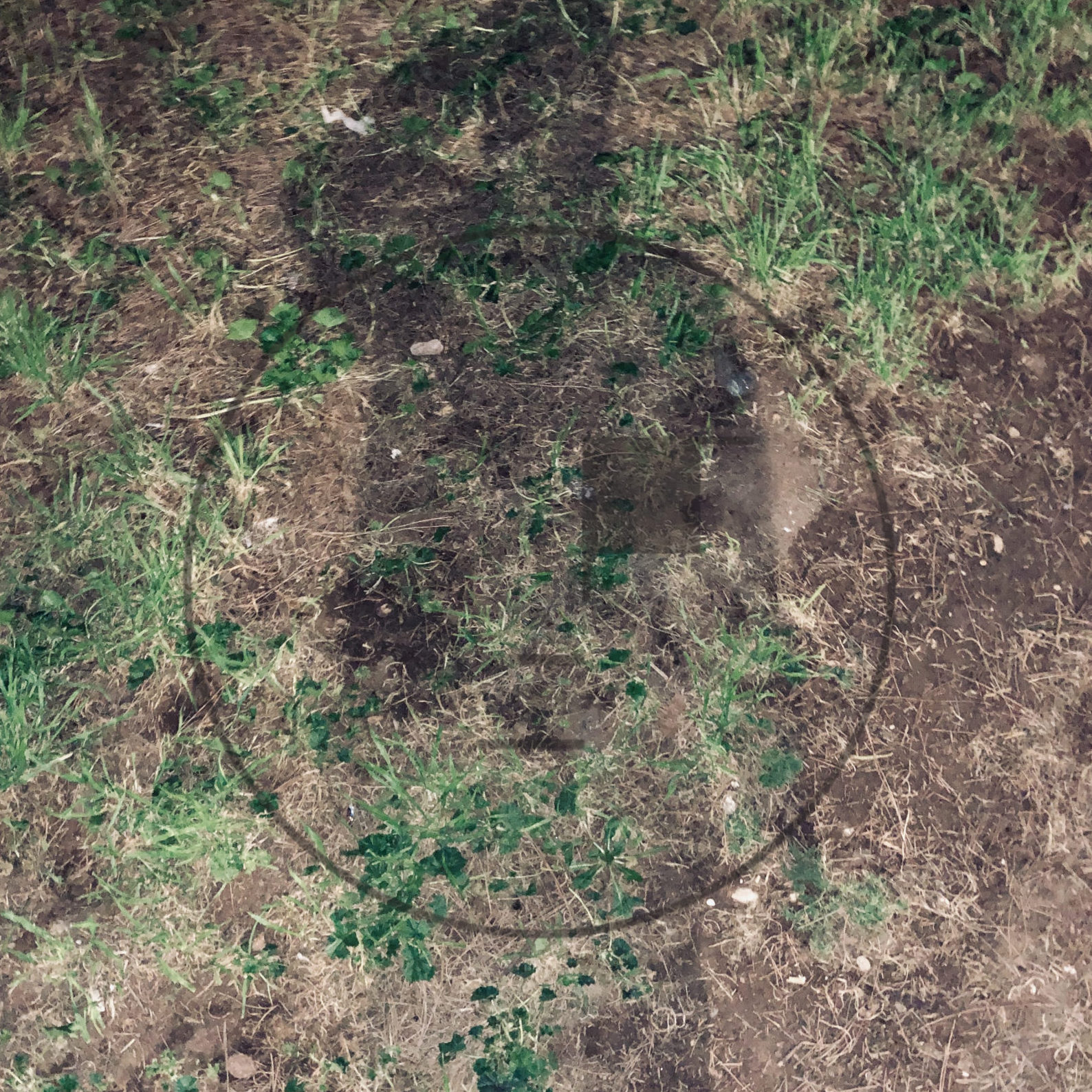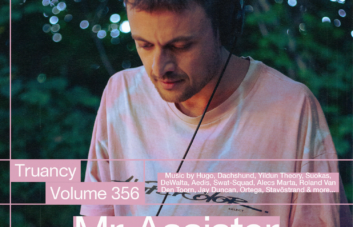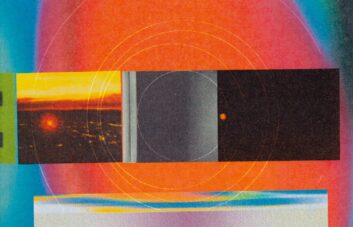Brainwaltzera is a deliberately mysterious artist. This shtick is nothing new, but it seems to be working for him. Over the past few years he’s putout a steady stream of releases, largely on the equally mysterious FILM (Future is listening music). He’s also been part of compilations on the likes of Craigie Knowes and Monkeytown Records, Following the release of the Epi-Log EP we caught up with him to discuss the consequences of anonymity, genre and legacy, the meaning of track titles and life outside music.
I don’t know where to begin. How are you? “Great place to start :) I’m doing well, thanks for asking. As you’re probably aware, I’m not used to talking much about my music, but I guess this is a good a time as any to answer a few questions.”
Your records regularly go for silly prices on Discogs. How do you feel about that? “Yeah I’ve noticed. Some of the EPs were pressed in limited numbers so I suppose it’s an unavoidable consequence of scarcity?”
You’ve put out quite a few records in just a few years. How much are you sitting on? “The short answer is loads. I make a lot of music and have been doing so for a very long time. I often come across tracks of mine that I don’t even remember making and there are a few I remember very well and can no longer find. The tracks on the records I’ve released thus far purposefully combine old and new music, as well as older ideas that I fleshed out more recently. In any case, with the release of the Epi-Log EP which closes the Poly-Ana series and two forthcoming EPs on Analogical Force and Furthur Electronix, I’ve decided to stop mining my back-catalogue completely and focus on totally fresh ideas. Maybe I’ll come back to it at another point in the future.”
What’s your process like? What’s your life like outside of music? “I honestly don’t have a specific process or formula that I rely on consistently. Part of this has to do what the fact that I tend to binge produce during prolific creative spurts and as a result there are usually long gaps between studio sessions, which is not exactly conducive to developing recurring habits or rituals. One recognisable pattern I could mention, is that I often choose time consuming and unnecessarily complex methods to accomplish what might sound like the simplest sound or effects chain. In my own romanticised view of making music, I’m less interested in the efficiency and immediacy of contemporary methods and remain attached to the idea that every sound should have its own back-story in order to earn the right to carry a melody or rhythm in a track.
“As for my life outside of music, it’s a very different and totally separate world. This is not to say that it doesn’t have a major influence on my music. For instance I’ve never been based anywhere in the traditional sense of the word, which is an aspect of my life that inevitably defines my music.”
Some of your stuff sounds like (if you’ll forgive the reductive terminology) ambient-leaning electronica, what some people might term IDM (not me). Then stuff like “Slagplum _Rubick V.5” sounds like Mo’Wax trip-hop. Do constant references to the early days of Warp get grating? “I’m fine with people calling my music whatever they want and it can actually be very amusing to see what they come up with. It’s interesting to me for example that you referenced two labels with a curated yet wide-ranging roster of artists and an extremely varied musical output. Personally, I’ve never applied an overarching label to what I do. I actually have never understood the tendency to commit exclusively to one genre let alone a sub-genre of electronic music. It’s so bizarre to me how in the early rave days, despite the serious limitations of the available gear, producers were unabashedly all over the place in terms of sound and tempos, whereas when the tools became boundless and allowed for an unprecedented level of creative freedom, the propensity to remain within self-imposed or genre-specific limits increased dramatically. Don’t get me wrong, I’m not trying to throw shade at anyone as I totally understand the benefits that come with dedicating oneself to honing a specific sound and there is no doubt that incredible music has been accomplished in this way. I just don’t think I could ever approach things in that way and I’ve never even had an internal conversation in those terms when I’m in the studio either.”
How did you start working with FILM? “Before working with the label, it was already on my radar through a record they had released with Steve Reich/Terry Riley re-interpretations. At some point after I had uploaded some tracks on Soundcloud and had just pressed an EP on my own, they reached out to me to see if I would be interested in releasing a series of records. They were very open to all sorts of ideas and I was very intrigued with the direction the label was taking both musically and visually so I was eager to give it a go. On a personal level, we clicked almost immediately and I would say we even became friends fast without even having met. I’ve had very similar experiences with the other labels I’ve worked with too.”
One review made reference to the Pollyanna principle, also known as positivity bias – a psychological tendency for people to place greater importance on, and assume better accuracy of, descriptive statements about them that are positive – is that a correct link to make? “It is yes, in part. I consider it however a positivity bias toward one’s own memories. Having never lived in one place for longer than a few years, I’ve left many things behind while moving forward, some for better some for worse. During the periods of adjustment to new circumstances, I noticed time and time again that my memories would almost reshuffle and either filter out negative experiences or sugar-coat them in retrospect. Once I acknowledged this tendency I became very interested in deconstructing it and figuring out why it happens and how it works. One of the ways I explored this notion was through the music on the album and the related EPs, which as I mentioned was created in different times and places.”
Your track titles are often incoherent and impenetrable. Are you being deliberately off-putting, playful or is it just that you have to give them a title and anything will do? “Forgive the crass analogy but I feel like track titles are often used as inception devices to implant an idea or context in the listener’s mind. I’m much more interested in reversing the process and allowing space for the listener to project their own thoughts and experiences onto the music. The pronunciation of the track names is also not always clear as I’d rather leave it to the imagination of others and hopefully incite a more personal attachment or sense of ownership to the music. That is not to say that the titles I choose don’t have a very specific meaning for me, because most of them do.”
You’ve released on Modeselektor’s compilation and got a remix from Luke Vibert. What’s it like working with people with such long histories? “I’ve always loved their music and followed their progress from way back, so in both cases it’s been an amazing experience and a true honour. I’ve also really enjoyed working with many newer artists on remixes. In fact I’ve been trying to get a collaborative project going with one of them who is a beekeeper by profession but a talented though hard to motivate musician. Provatron if you’re reading this give me a buzz.”
The “Who is brainwaltzera” page on Facebook has nearly 1,300 likes. What do you make of this fascination with (your) identity? “As your use of parenthesis implies, this is of course a wider phenomenon. Personally, when I listen to electronic music in particular I find most contextual information distracting. Not to mention that, from personal experience, I believe it’s best to never meet your heroes.”
If you weren’t answering these questions, what would you be doing? “I have young kids so I’d probably be answering one of theirs.”
Brainwaltzera – Epi-Log EP is out now on FILM. Buy here.




